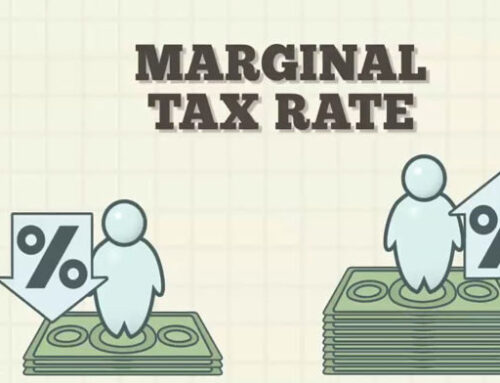Cannabis has become a global hot topic, with Canada and various other regions legalizing it for medical or recreational purposes. As more countries explore legalization, individuals and companies are eager to participate in this once-in-a-generation opportunity. However, to thrive in the cannabis industry, understanding the accounting and bookkeeping for Cannabis implications is crucial. In this post, we’ll explore some important points that individuals and businesses should keep in mind as they venture into the bookkeeping for cannabis sector. Though this post provides valuable insights, it’s essential to consult with an accountant for a comprehensive understanding.
Pre-Revenue Companies for Efficient Accounting and Bookkeeping for Cannabis
Starting a cannabis business may involve initial expenses such as operational and capital costs. While some may overlook the need for accounting at the pre-revenue stage, it is wise to engage with an accountant early on. Setting up an accounting system and tracking expenses from the beginning can prevent future bookkeeping for cannabis catchups that may be time-consuming and expensive. Utilizing an online accounting system with integrated apps for receipts and expenses maximizes automation and provides up-to-date business information.
Raising Capital: The Importance of Financial Statements
For those seeking investment, having up-to-date financial statements is crucial to instill confidence in investors and stakeholders. Organized books not only reflect your commitment to responsible financial management but also lay the groundwork for future capital raises. By providing accurate accounting records, you, your team, and your investors gain a better understanding of the business, enabling more informed decisions for scaling the operation.
Taxation: Treating Cannabis Companies Like Any Other Business
Tax considerations for cannabis companies follow a similar structure to other businesses. Revenue minus expenses determines net income, with positive net income leading to tax obligations based on the province of operation. In contrast, negative net income allows losses to be carried forward to reduce future tax burdens. Providing an organized set of accounting records allows the accounting firm to prepare corporate tax returns and have strategic discussions about the business’s performance and direction.

Sales Taxes and Excise Duties: Additional Tax Requirements
Apart from income taxes, cannabis businesses must navigate sales taxes and excise duties. Charging and remitting GST/HST and Provincial Sales Tax on products and services is standard practice. As cannabis sales involve multiple transactions between producers, distributors, and consumers, proper accounting and tracking of sales taxes are essential to avoid arrears for bookkeeping for cannabis. Additionally, companies in the cannabis industry must pay excise duties, with specific guidelines to adhere to for proper reporting and compliance.
Final Thoughts: Preparing for Success in the Cannabis Industry
The cannabis industry offers various avenues for business growth, but success requires diligent financial tracking and adherence to Tax Filing in Chatham regulations. Whether you’re involved in growing, packaging, retail, distribution, or consulting, maintaining a granular level of financial organization is key. Being proactive with accounting from the outset ensures that your business remains ahead of regulatory requirements and is well-equipped for sustainable growth in this evolving and exciting sector.
The cannabis industry has experienced exponential growth in recent years, with an increasing number of states and countries legalizing the use of both medical and recreational marijuana. While this burgeoning industry offers tremendous opportunities, it also presents unique challenges, especially when it comes to accounting and bookkeeping.
Also read: Outsourcing Bookkeeping: The Key to Efficient Management
Navigating Regulatory Compliance
One of the foremost challenges for cannabis companies is dealing with complex and ever-changing regulations. To maintain compliance with federal, state, and local laws, it’s crucial to have an accounting system that can adapt to these changes. This includes tracking tax obligations, adhering to reporting requirements, and ensuring transparent financial records.
Segregating Costs: Direct vs. Indirect
Cannabis companies often have a diverse range of expenses, some directly related to the cultivation and production of cannabis, while others are more indirect. It’s essential to segregate these costs effectively to gain a clear understanding of your financial performance. This separation allows for better tax planning and decision-making.
Inventory Management
Proper inventory management is paramount in the cannabis industry. Due to the perishable nature of the product and strict regulations, maintaining accurate records of your inventory is essential. Implementing a robust tracking system can help you avoid costly errors and penalties.

Cash Handling and Banking
Many cannabis companies still face challenges when it comes to banking services. Due to federal regulations, most traditional banks hesitate to serve the industry. Consequently, cash handling becomes a significant concern. Developing a secure system for cash management and exploring alternative banking solutions can mitigate these risks.
Accounting Software and Technology
Investing in modern accounting software tailored to the cannabis industry can streamline your financial processes. These software solutions often include features such as compliance tracking, inventory management, and tax reporting tools, bookkeeping for cannabis, making your accounting tasks more efficient and accurate.
Tax Planning and Strategy
Taxation in the cannabis industry can be quite complex, given the disparities between state and federal regulations. Engaging with a tax professional who specializes in cannabis can help you navigate this intricate landscape, minimize tax liabilities, and ensure you take advantage of available deductions.
Auditing and Internal Controls
Implementing strong internal controls and audit procedures is crucial for maintaining the integrity of your financial data. Regular audits can identify discrepancies, fraud, or inefficiencies in your accounting system, allowing you to take corrective action promptly for Bookkeeping in Chatham.

Employee Training
Well-trained accounting and bookkeeping staff are invaluable in the cannabis industry. Ensure that your team is well-versed in cannabis-specific accounting practices and regulatory requirements to minimize errors and maintain compliance.
Also read: Why Effective Bookkeeping for Businesses is Crucial
Efficient accounting and bookkeeping are foundational for the success of any cannabis company. With the unique challenges posed by regulatory compliance, inventory management, and tax complexities, it’s essential to adopt specialized strategies and practices to navigate this burgeoning industry successfully for Accounting and Bookkeeping. By prioritizing compliance, technology, and financial transparency, cannabis companies can thrive in this rapidly evolving market.
As the cannabis industry continues to grow, so does the need for efficient and compliant accounting and bookkeeping for cannabis practices. Operating a cannabis company comes with unique financial challenges and regulatory requirements that demand careful attention. In this blog post, we’ll explore essential strategies for maintaining efficient accounting and bookkeeping processes in the cannabis industry.
-
Understand Regulatory Compliance
Before diving into accounting and bookkeeping, it’s crucial to have a deep understanding of the complex regulatory landscape governing cannabis businesses. Regulations can vary significantly from one jurisdiction to another, so it’s essential to stay informed and adapt your financial practices accordingly. Compliance with tax codes, licensing requirements, and record-keeping standards is non-negotiable.
-
Implement a Cannabis-Specific Chart of Accounts
One of the most efficient ways to manage finances in the cannabis industry is by creating a specialized chart of accounts tailored to your business. This chart should reflect the unique revenue streams, expenses, and tax categories relevant to cannabis operations. Properly categorizing transactions will streamline financial reporting and ensure compliance for Accounting and bookkeeping for cannabis.
-
Utilize Specialized Software
Invest in accounting and bookkeeping software specifically designed for the cannabis industry. These platforms are equipped with features that simplify compliance, including tracking cannabis inventory, managing tax obligations, and generating accurate financial reports. Popular software options include Green Bits, QuickBooks for Cannabis, and MJ Freeway.
-
Maintain Strict Record Keeping
Accurate and comprehensive record-keeping is essential for any business, but it’s especially critical for cannabis companies. Keep detailed records of all financial transactions, including sales, purchases, payroll, and inventory. Ensure that records are organized, easily accessible, and backed up securely to comply with regulatory requirements.
-
Separate Business and Personal Finances
Maintain a clear separation between your business and personal finances. Open separate bank accounts and credit cards for your cannabis business to avoid commingling funds. This separation not only simplifies accounting but also protects your personal assets in case of legal or financial issues.
-
Monitor Cash Flow Carefully
Cash flow management is paramount in the cannabis industry, where operating expenses, taxes, and regulatory fees can be substantial. Regularly monitor your cash flow to ensure you have the liquidity needed to cover expenses and remain compliant. Create cash flow forecasts to anticipate potential shortfalls and plan accordingly.
-
Hire a Cannabis-Focused Accountant or Bookkeeper
Consider enlisting the expertise of professionals experienced in cannabis Accounting services in Chatham from accounting and bookkeeping for cannabis. Cannabis-focused accountants and bookkeepers are well-versed in industry-specific regulations and can provide valuable insights into accounting and bookkeeping optimizing your financial processes while maintaining compliance.
-
Stay Informed and Adapt
The cannabis industry is dynamic, with regulations and market conditions evolving rapidly. Stay informed about changes in tax laws, licensing requirements, and industry trends. Adapt your accounting and bookkeeping for cannabis practices accordingly to remain compliant and competitive.

Conclusion
Efficient accounting and bookkeeping for cannabis are essential components of a successful cannabis business. By understanding and adhering to regulatory requirements, implementing specialized software, maintaining strict record-keeping, and monitoring cash flow, you can navigate the unique financial challenges of the bookkeeping for cannabis industry. Consider seeking professional guidance and continuously staying informed to ensure your business thrives in this dynamic and rapidly growing sector. Efficient financial management will not only help you remain compliant but also position your cannabis company for long-term success.
Recent Posts
FAQ
Why is proper accounting and tracking of sales taxes crucial in the cannabis industry, and what other tax requirement do cannabis companies need to fulfill?
Proper accounting and tracking of sales taxes are essential in the cannabis industry due to the multiple transactions involved between producers, distributors, and consumers. Charging and remitting GST/HST and Provincial Sales Tax on products and services is standard practice to ensure compliance with tax regulations. Failure to manage sales taxes correctly can lead to arrears and potential legal issues.
In addition to sales taxes, companies in the cannabis industry are also required to pay excise duties. Excise duties come into effect when marijuana products are delivered to purchasers, and specific guidelines must be followed for proper reporting and compliance. Adhering to these tax requirements is crucial for the smooth operation of cannabis businesses and to avoid any potential penalties or financial implications.



